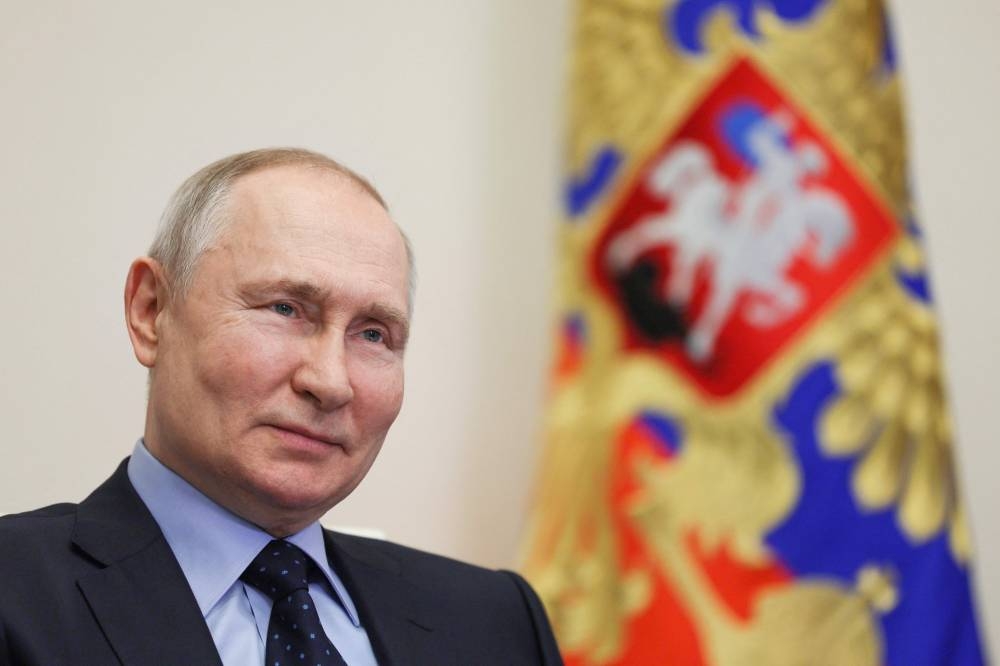Russia adopts new anti-West global strategy

MOSCOW - President Vladimir Putin today signed off a new Russian foreign policy strategy aimed at curtailing Western "dominance" and identifying China and India as key partners for the future.
The new document cements the deep Cold War-style rupture between Russia and the West over Moscow's offensive in Ukraine.
"The Russian Federation intends to give priority to the elimination of vestiges of the dominance of the United States and other unfriendly countries in world politics," the strategy document said.
The term "unfriendly countries" is used by Russia to refer to those countries, particularly in Europe and North America, that have condemned Moscow's military campaign in Ukraine and adopted sanctions.
The 42-page document, which was published on the Kremlin's website, said that Russia would aim to "create the conditions for any state to reject neo-colonialist and hegemonic aims".
Announcing the document at a security council meeting, Putin said that updates to Russia's strategy for engagement on the global stage were necessary due to "radical changes" in the world.
The strategy reflects the Russian leader's increasingly anti-Western stance in the face of sanctions and Western military aid to Ukraine, as was also seen in his state of the nation speech last month.
Russia has become increasingly isolated on the world stage and has sought to boost political and economic ties with countries in Africa and Asia such as China and India that taken a more neutral stance towards its offensive in Ukraine.
In the new strategy, Russia singled out ties with China and India and stressed the importance of "the deepening of ties and coordination with friendly sovereign global centres of power and development located on the Eurasian continent."
Putin recently talked up ties in particular with China during President Xi Jinping's visit to Moscow earlier this month.
Moscow has stepped up energy supplies to both China and India after being almost entirely cut off from its traditional European markets.
The document also described Russia as a "state-civilisation" tasked with defending what it called the "Russian world" of related cultures on the Eurasian continent.
The concept of a "Russian world" is used by the Kremlin to justify its actions in Ukraine with claims that it is defending the country's Russian-speaking minority.
The strategy also said that Russia would defend "traditional spiritual and moral values" against "pseudo-humanistic and other neo-liberal ideological attitudes".
Foreign Minister Sergei Lavrov said the document recognised "the existential nature of threats to the security and development of our country, driven by the actions of unfriendly states".
"The United States of America is directly named as the main instigator and driver of anti-Russian sentiment," he said.
"The West's policy of trying to weaken Russia in every possible way is characterised as a hybrid war of a new type". - AFP














